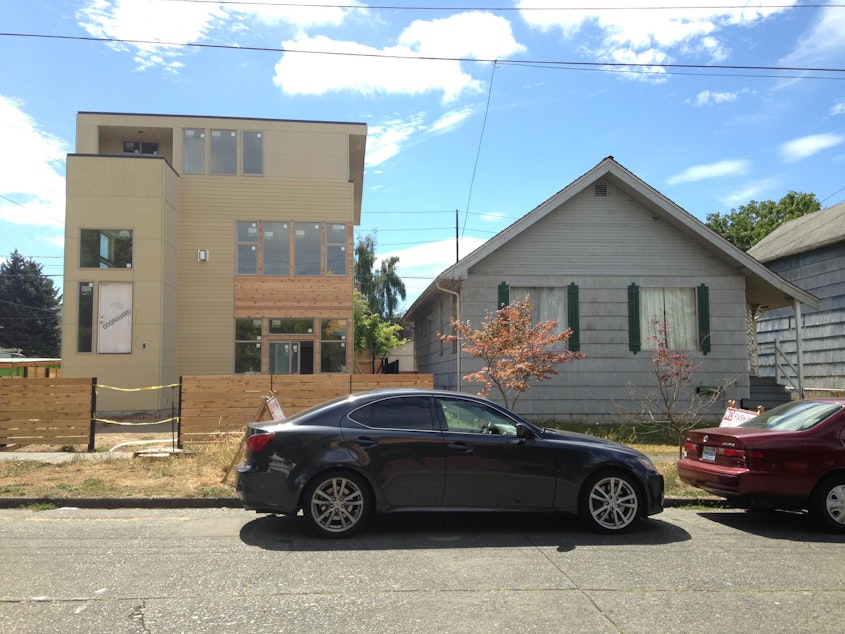Seattle was ‘asleep at the switch’ when Amazon started, says King County exec

We have PLENTY of room for Amazon! say the new cities where Amazon plans to expand, Queens and Crystal City.
Mmmm, replies Seattle. Once a upon a time, we thought so too.
Seattle city planners thought they’d get 18,000 workers when they signed up to put Amazon in South Lake Union, the neighborhood due north of downtown.
That figure was quaint: Amazon added 45,000 people. And 6,000 dogs.
A booming business doesn’t just add its own workers to a city, Seattle learned. Tech startups popped up nearby, and all these well-compensated workers had money to spend. They frequented coffee shops with $4 croissants, pet spas and took float planes to the San Juan Islands because they could.
In four years, the Seattle area gained 300,000 people.
“We didn’t realize what was going to happen,” said Dow Constantine, the King County executive. “This was the first time Amazon happened. We were, I think, asleep at the switch.”
Sponsored
The speed of Amazon’s growth caught Seattle by surprise. Demand for apartments swamped neighborhoods near the headquarters, pushing people out.
Bidding wars doubled home prices, triggering tax increases, and traffic congestion stepped on Seattle’s last nerve.
“Those are all things that we should have anticipated,” Constantine said.
Seattle struggled with homelessness. As Amazon grew, people started sleeping in tents and vehicles all over Seattle. And the cost of services to them was exploding.
Millionaire Lavish, a Seattle-born teen, blamed being homeless on the boom: “Amazon, you know, these companies are causing more homelessness. Since they’ve been here, our rent went from $850 to $1,550. More people are going to be downtown homeless. More people are going to be committing more crimes because they’ve got no money and they need some money, so they’re going to be robbing people.”
Sponsored
Last spring, the Seattle City Council determined to tax Amazon and other employers to raise money for shelters.
At a neighborhood meeting, Mike O'Brien, a Seattle City Councilmember, explained why.
“We cannot solve this without additional revenue,” he said. “When I look at Amazon’s profits in the first quarter of last year where they made more than $2 billion, and I look at the folks who are doing well in this environment, that seems like a fair system to me.”
Within minutes, the meeting flew out of control, turning into a cacophony of grievances that Seattleites have quietly nursed for years. The city has taken off like a rocket, but the buzz is wearing off, and a feeling of exhaustion now hangs over the city.
[Read our story about that fraught meeting: “The day ‘Seattle nice’ died”]
Sponsored
In this meeting and others, residents said they were tired of the traffic, of discarded heroin needles, of 911 dispatchers telling them to figure it out, of human feces in parks, of homeless tents lining traffic medians, of real estate bidding wars, of increasing property taxes to pay for these problems (but then nothing getting better), of the din of construction, of the constant dust, of the rats that sneak into basements because of the development next door, of the box house going up and blocking the sunlight.
The refrain, more constant than rain, became the heartbeat of this formerly working class, Wild West town: What is happening to my city?
At the meeting, which was recorded by KOMO-TV, a woman shared her story: “Last October, I got a bill to raise my property taxes, and I couldn’t do that and pay my mortgage too. I lost my house. I had that house for 28 years. There’s got to be a different way for them to get money and help people.”
The council passed the head tax, and then, bowing to pressure by Amazon, quickly repealed it.
Virginia and New York, too, are starting by giving Amazon a sweetheart deal: The company negotiated incentives that add up to $2 billion in Amazon’s favor.
Sponsored
In Seattle, Constantine says beware: “All this prosperity, all this business success, brings some unintended consequences.”
Constantine’s advice: “Plan ahead for housing. Recognize that housing is going to become more expensive and protect the people who already live in communities.”
The new Amazon cities don’t seem worried, however. Virginia, which is planning for at least 25,000 Amazon jobs, says it has planned for decades for this kind of opportunity.
A New York tech executive said the city can easily absorb a headquarters of Amazon’s size.
Amazon says it will start hiring in New York and DC as early as next year.
Sponsored
This story includes reporting from past KUOW stories by Isolde Raftery, Patricia Murphy and Willard Jimerson.



